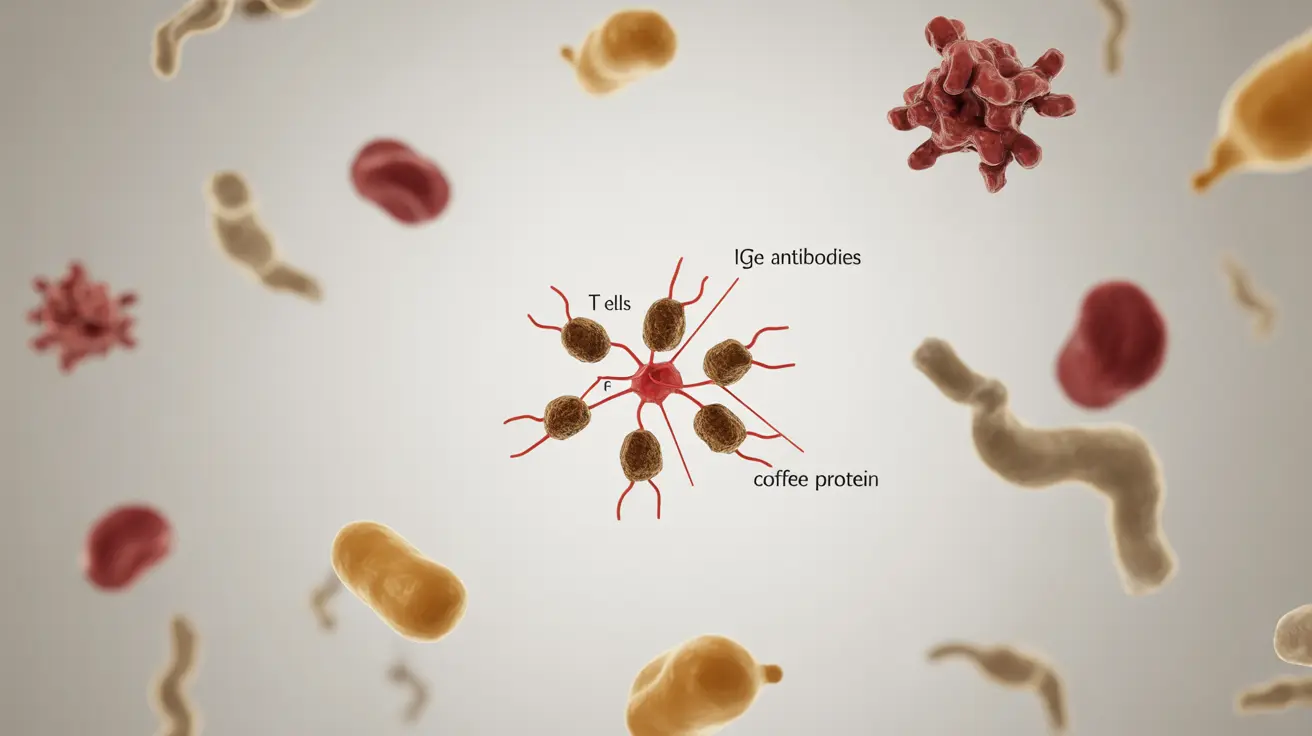A coffee allergy, while less common than caffeine sensitivity, can cause significant health concerns for affected individuals. This condition occurs when your immune system mistakenly identifies certain proteins in coffee as harmful substances, triggering an allergic response. Understanding the difference between a true coffee allergy and other adverse reactions to coffee is crucial for proper diagnosis and management.
Whether you're experiencing symptoms after drinking coffee or suspect you might have a coffee allergy, this comprehensive guide will help you understand the condition, its symptoms, diagnosis methods, and management strategies.
Identifying Coffee Allergy Symptoms
Coffee allergy symptoms can range from mild to severe and typically appear within minutes to hours after consumption. These reactions differ significantly from caffeine sensitivity or intolerance.
Common Physical Symptoms
- Skin reactions (hives, itching, or rashes)
- Swelling of the lips, tongue, or throat
- Difficulty breathing or wheezing
- Gastrointestinal issues (nausea, vomiting, or diarrhea)
- Headaches or dizziness
Distinguishing from Caffeine Sensitivity
Unlike a true coffee allergy, caffeine sensitivity typically presents with symptoms such as jitteriness, anxiety, rapid heartbeat, and sleep disturbances. These symptoms are related to the stimulant effects of caffeine rather than an immune system response.
Diagnosis and Testing
Proper diagnosis of a coffee allergy requires professional medical evaluation. Healthcare providers typically use several methods to confirm the condition:
Diagnostic Methods
- Skin prick tests
- Blood tests for specific antibodies
- Oral food challenge (under medical supervision)
- Detailed medical history assessment
Your healthcare provider will likely recommend eliminating coffee from your diet temporarily to observe if symptoms improve, followed by controlled reintroduction if appropriate.
Managing Coffee Allergies
Once diagnosed with a coffee allergy, several management strategies can help you maintain your quality of life while avoiding allergic reactions.
Essential Management Strategies
- Complete avoidance of coffee products
- Reading food labels carefully
- Identifying coffee alternatives
- Carrying emergency medication if prescribed
- Wearing medical alert jewelry
Hidden Sources of Coffee
Coffee can be present in unexpected products, including:
- Flavored foods and beverages
- Chocolate-based products
- Energy drinks and supplements
- Some alcoholic beverages
- Certain desserts and baked goods
Emergency Response and Treatment
In cases of severe allergic reactions, immediate medical attention is crucial. Understanding the signs of anaphylaxis and having an action plan in place can be life-saving.
Signs of Severe Reaction
- Difficulty breathing
- Rapid pulse
- Sharp drop in blood pressure
- Loss of consciousness
- Severe swelling
If prescribed, always carry an epinephrine auto-injector and ensure you and those close to you know how to use it properly.
Frequently Asked Questions
What are the symptoms of a coffee allergy and how do they differ from caffeine sensitivity? While coffee allergy symptoms include immune responses like hives, swelling, and breathing difficulties, caffeine sensitivity typically causes jitteriness, anxiety, and sleep issues. The key difference lies in the immune system's involvement in true allergic reactions.
How is a coffee allergy diagnosed, and what tests do doctors use to confirm it? Doctors diagnose coffee allergies through a combination of skin prick tests, blood tests for specific antibodies, and carefully monitored oral food challenges. They also consider detailed patient history and symptom patterns.
Can a coffee allergy cause severe reactions like anaphylaxis, and what should I do in an emergency? Yes, coffee allergies can potentially cause anaphylaxis, a severe and life-threatening reaction. In case of severe symptoms, use an prescribed epinephrine auto-injector immediately and call emergency services.
Are there treatments or management strategies for people with a diagnosed coffee allergy? Management primarily involves complete avoidance of coffee products, careful label reading, and having emergency medication on hand. Working with an allergist can help develop a comprehensive management plan.
What foods or drinks should I avoid if I have a coffee allergy, and are there any hidden sources of coffee allergens? Besides obvious coffee products, be cautious with flavored foods, chocolate products, energy drinks, some alcoholic beverages, and desserts that might contain coffee. Always check ingredient labels and ask about ingredients when dining out.




